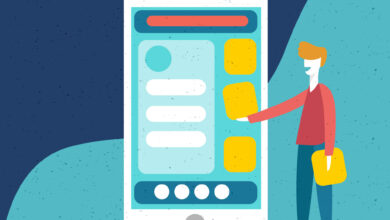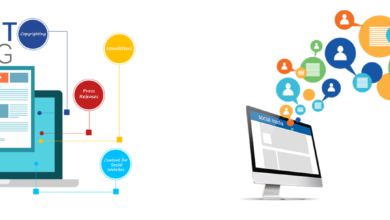AI Recruiting Software: Transforming the Future of Hiring
Artificial Intelligence (AI) is revolutionizing industries, and recruitment is no exception. AI recruiting software is changing how businesses attract, assess, and hire talent, making the process faster, smarter, and more effective. From screening resumes to predicting candidate success, AI tools free recruiters from tedious tasks so they can focus on engaging top candidates. This article will dive into what AI recruiting software is, how it works, its benefits, challenges, and the trends shaping the future of recruitment.
What is AI Recruiting Software?
AI recruitment software is a tool that leverages machine learning and complex algorithms to streamline various stages of the hiring process. It automates tasks such as resume screening, candidate sourcing, and even interview scheduling, allowing recruiters to concentrate on higher-level tasks. By using AI, companies can improve the efficiency of their hiring processes while reducing human error and unconscious bias.
How AI Recruiting Software Works
1. Automated Resume Screening
One of the biggest challenges for recruiters is sifting through hundreds of resumes. AI recruiting software automates this by scanning resumes for relevant skills, experience, and qualifications. It can quickly identify the best-fit candidates based on the job description, reducing manual review time.
2. Candidate Sourcing
AI recruiting tools search across various platforms—including job boards, social media, and internal databases—to find both active and passive candidates. This ensures that companies have access to a larger pool of talent and don’t miss out on potential hires who aren’t actively job-hunting.
3. Scheduling Interviews
Coordinating interview schedules between candidates and hiring managers can be a logistical nightmare. AI automates this process by finding mutually available time slots, sending invitations, and confirming appointments, saving valuable time for recruiters.
4. Predictive Analytics
AI doesn’t just stop at identifying candidates—it also helps predict their success. By analyzing historical data on previous hires, AI tools can forecast how well a candidate will perform in a specific role. This predictive capability can improve long-term hiring success and retention rates.
5. Candidate Assessments
AI-powered assessment tools go beyond resumes by evaluating a candidate’s skills, personality, and even cultural fit. These assessments provide a more holistic view of candidates, helping companies make more informed hiring decisions.
Key Benefits of AI Recruiting Software
1. Speeding Up the Hiring Process
AI significantly reduces time-to-hire by automating repetitive tasks. Tasks like resume screening and interview scheduling are done in minutes, allowing recruiters to focus on high-impact activities.
2. Reducing Bias
AI recruitment tools assess candidates based on objective data like skills and qualifications, reducing unconscious bias. This helps foster a more inclusive hiring process, as candidates are judged on merit rather than subjective opinions.
3. Enhanced Candidate Experience
Candidates appreciate a quick and smooth hiring process, and AI helps deliver that. Automated communication and scheduling ensure that candidates are kept in the loop and aren’t left waiting, improving their overall experience.
4. Data-Driven Decisions
AI recruiting software enables recruiters to make more informed decisions by using data analytics. Whether it’s predicting a candidate’s success or measuring their skills, these data-driven insights result in better hiring matches and improved employee retention.
5. Handling High Application Volumes
In roles that attract a large number of applicants, AI recruiting software is invaluable. It quickly filters out unqualified candidates, allowing recruiters to focus on the top contenders without being overwhelmed by sheer volume.
Challenges of AI Recruiting Software
1. Data Privacy and Security
AI recruiting tools handle sensitive candidate data, which raises privacy concerns. Companies must ensure that they comply with data protection regulations like GDPR to protect candidate information and avoid legal repercussions.
2. Algorithmic Bias
While AI can reduce bias, it can also introduce it if the algorithms are trained on biased data. Regular audits and improvements are needed to ensure AI recruiting tools make fair, unbiased decisions.
3. Cost of Implementation
Implementing AI recruiting software can be expensive, especially for small businesses. While the long-term efficiency and cost savings are undeniable, the initial setup costs may be prohibitive for some organizations.
Popular AI Recruiting Software Platforms
Several AI recruiting platforms are leading the charge in reshaping the hiring process:
- HireVue: An AI-powered video interview platform that analyzes candidates’ speech, expressions, and word choice to assess their suitability for a role.
- Pymetrics: Uses neuroscience-based games and AI to match candidates with roles based on their cognitive and emotional attributes.
- Greenhouse: A comprehensive recruitment platform that incorporates AI to improve hiring decisions, with a focus on promoting diversity and inclusion.
Future Trends in AI Recruiting
1. Personalized Candidate Journeys
AI will continue to personalize the recruitment process, offering tailored job recommendations, interview experiences, and communication based on each candidate’s preferences and profile.
2. Greater Focus on Diversity
AI will help companies improve diversity and inclusion by eliminating biased language in job descriptions and ensuring fair assessments during hiring. AI-powered analytics can also monitor diversity efforts to ensure companies stay on track.
3. AI-Enhanced Employee Retention
AI isn’t just for hiring—it will also play a bigger role in retention. By analyzing performance data and engagement levels, AI tools can predict employee turnover and suggest interventions to improve retention rates.
Conclusion
AI recruiting software is fundamentally changing the way companies hire by automating time-consuming tasks, reducing bias, and making data-driven decisions. The advantages include a faster hiring process, improved candidate experience, and more informed decisions, but companies must address challenges like data privacy and potential bias in the algorithms. As AI continues to evolve, it’s set to play an even larger role in recruitment, offering more personalized and effective hiring processes.
FAQs
- What is AI recruiting software?
AI recruiting software automates hiring tasks like resume screening, candidate sourcing, and interview scheduling, using machine learning and data analysis. - How does AI reduce bias in hiring?
AI tools evaluate candidates based on objective data, minimizing unconscious bias and promoting a more inclusive recruitment process. - What are the main challenges of AI recruiting software?
Key challenges include data privacy concerns, potential biases in AI algorithms, and the cost of implementing such technology. - How does AI enhance the candidate experience?
AI tools streamline communication and scheduling, ensuring candidates have a smoother and more efficient recruitment process. - What are some leading AI recruiting platforms?
Top platforms include HireVue for video interviews, Pymetrics for neuroscience-based assessments, and Greenhouse for comprehensive recruitment solutions.



